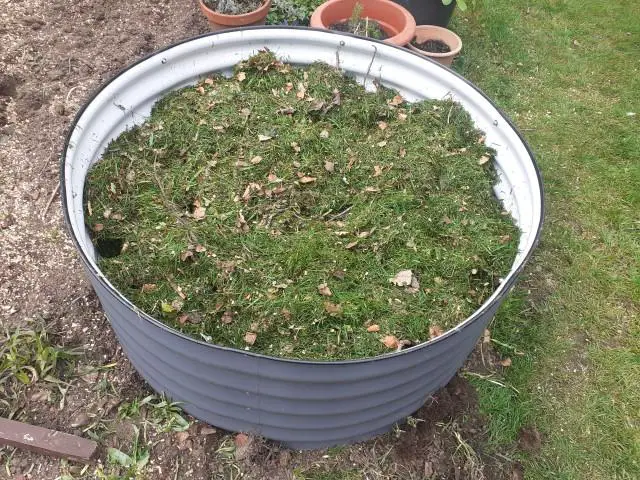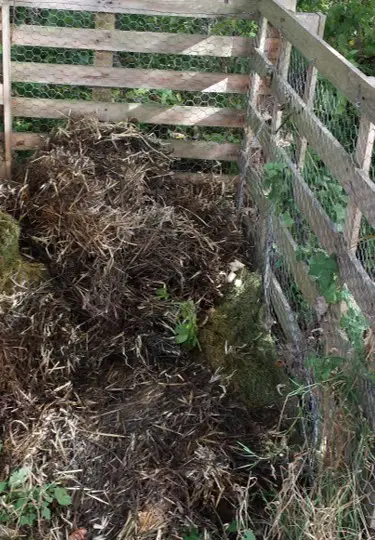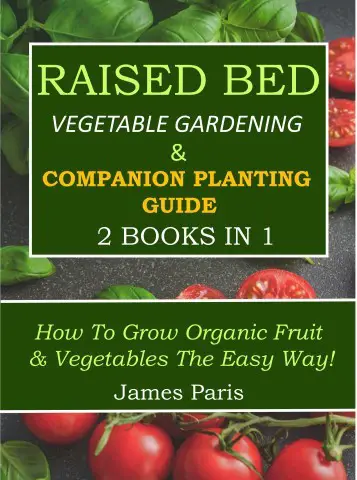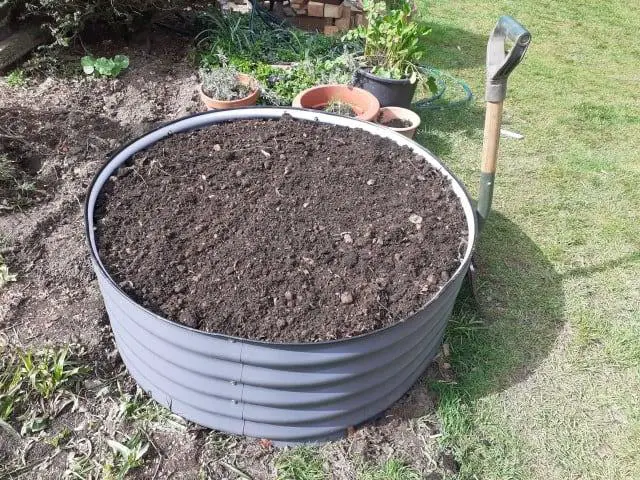Quick answer – No you do NOT have to change the soil (growing medium) in your raised bed garden every year – providing the soil is not contaminated in any way by virus, mold, or insect predation for example.
However…Even though you may not have to actually replace the soil, it is always advisable before planting that you ‘amend’ or improve the soil first.

Why Old Soil Needs Improving
Old soil needs dressed because there will be very little in the way of nutrients in the old soil, as the plants from the previous season will have sucked up most of the nutrients.
This means that although the soil may ‘look’ good – it will most likely be lacking in the nutrition that your new plants will need to see them over the growing season.
The ‘big three’ nutrients that plants need are potassium (K), phosphorus (P) and nitrogen (N). Known as NPK.
All these and other minor nutrients that suit vegetables in particular such as iron, copper, calcium, magnesium, sulphur and zinc , will be naturally present in a well-balanced soil with a Ph level at between 5.5 and 7.5
There are many kits available online that will measure this easily for you if you are in any doubt.
that will measure this easily for you if you are in any doubt.
How to Amend your raised bed soil
This is also termed ‘dressing the soil’ and is usually a case of just adding a few inches of fresh soil or better, soil & compost mix (50/50) to your existing soil.
Personally I tend to go for a mix of topsoil, compost, and vermiculite in equal measure. This is a great mix for most vegetable plants and will provide all the nutrients they need to grow. It is also a good mix in that it will not set hard throughout the season, and is light and friable enough to promote good root growth.
It is also an excellent mix when it comes to weeding the bed – which can be done with light hand tools (no heavy digging required).
Another way to amend your soil is to dig in some well-rotted manure.
Commercial soil amendments are of course acceptable if you have a budget for this. Otherwise even grass clippings and vegetable scraps dug under will improve the soil nutrients as they rot down.
Indeed if you have a supply of kitchen scraps then you might want to consider trying a Lasagna garden.
Also known as layer composting it can be a very productive way to use up kitchen and other organic waste. Check out this article for more on Lasagna gardening methods.
A list of soil amendment materials include…bone meal, blood meal, fish meal, garden sand, leaf mulch, compost, rotted manure, grass clippings and powdered egg-shell -why powdered?
Egg shells are high in calcium, which is excellent for fruiting plants such as tomatoes, and helps prevent blossom end rot. This can be a particular problem for tomato growers.
Many folks just crunch up the eggshells and add them to the soil. This is ok – but not best practice as eggshell can last several years before it breaks down and by doing so add the calcium to the soil.
A far better way in my opinion is to powder the shells up in a mixer before adding them to the soil.
No need to overdo it, as a rough measure, a teaspoon of this mix around the base of the plant twice throughout the season, should give adequate calcium to the plant. More on eggshell preparation here…
What about deep raised beds?
Deep raised beds (over 18 inches) seldom if ever need the soil replaced completely.
This could be expensive and involve a lot of laborious work – for no good reason.
The fact is that nearly all vegetables will grow and gain their nutrition in the top few inches of soil, with the exception of deep tap-root vegetables.
So for the most part, unless the soil has become contaminated or has gone ‘sour’, then it is only necessary to amend the soil in the top few inches of the bed to get good results.
How to keep soil healthy for growing vegetables
As discussed earlier in this article, amending or dressing the soil at the beginning of the season is essential for healthy soil.
The addition of other fertilizers or organic ‘tea’ throughout the growing season (particularly for fruiting crops) is another way to encourage growth.
Regular light weeding throughout the growing season, and irrigation of the soil ensures proper drainage and stops weeds from competing with your veggies for nutrients and water.
Mulching with bark or (my preferred option) grass clippings is an excellent way to help the soil retain moisture and restrict weed growth.
Finally at the end of the season it is always best to cover the soil with weed fabric or even old carpet.
This will prevent loss of nutrients through water incursion over the winter period.



